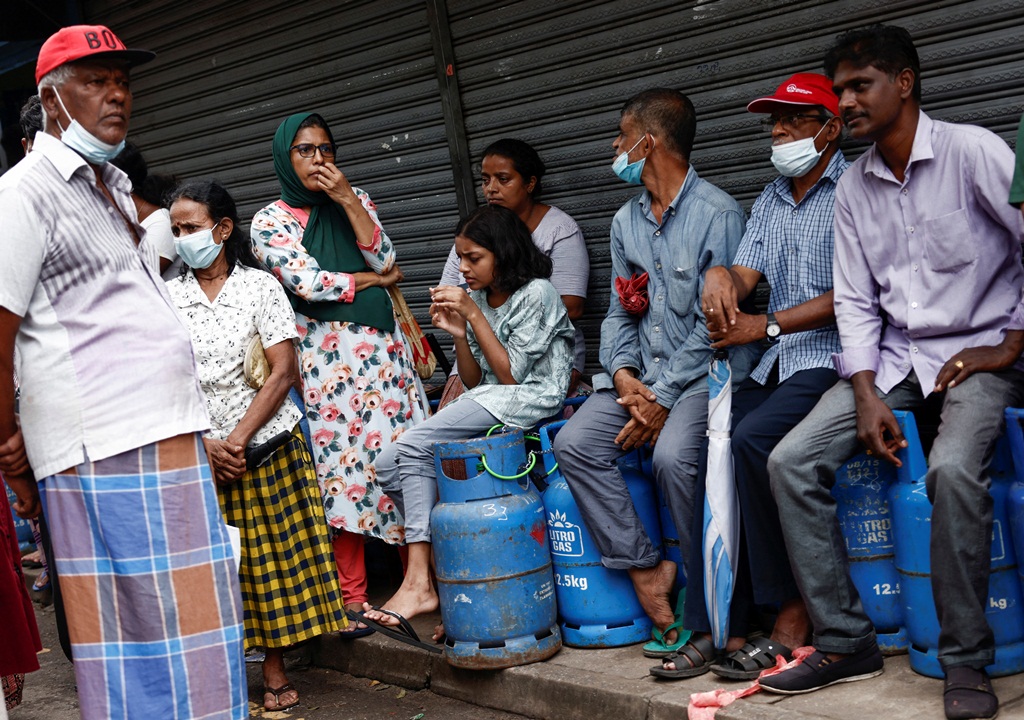COLOMBO: Inflation in cash-strapped Sri Lanka hit close to 40 percent in May, a record high that is not expected to drop in coming months, as food and fuel shortages continue in the country that is facing its worst economic crisis in over seven decades.
The island nation of 22 million defaulted on its $51 billion foreign debt for the first time in history last month. The crisis has led to political turmoil and mass protests that have been ongoing since March.
A severe shortage of foreign currency had stalled imports of essential goods, including food, fuel, and medicines for months.
The Colombo Consumer Price Index rose to 39.1 percent year-on-year in May, up from 29.8 percent in April, according to data released by the Department of Census and Statistics on Tuesday. Food inflation surged 57.4 percent, up from 46.6 percent in April.
“The inflation rate is expected broadly around the current levels, close to 40 percent, for the rest of the year,” economist Murtaza Jafferjee, chairman of the Colombo-based think tank Advocata Institute, told Arab News.
Jafferjee added that Sri Lanka’s inflation was “never as high as this,” as he blamed the soaring inflation mainly on tax cuts since President Gotabaya Rajapaksa came to power in 2019 and made the decision last year to ban all chemical fertilizer, which had led to a significant fall in crop yields.
The country, battling its worst economic crisis since independence in 1948, needs $4 billion in emergency funds this year. Its leaders have been trying to negotiate a deal with the International Monetary Fund for months.
Since securing a bailout from the IMF would require structural reforms, Prime Minister Ranil Wickremesinghe on Tuesday raised taxes by rolling back the cuts ordered by Rajapaksa in November 2019.
While the decision is unlikely to be popular among the protesting citizens who have already been severely battered by the crisis, Ranjith Bandara, economics professor from the University of Colombo, told Arab News that “unless remedial measures are taken by the state, the inflation can go from bad to worse.”
Sri Lanka inflation hits new record as food, fuel shortages continue




